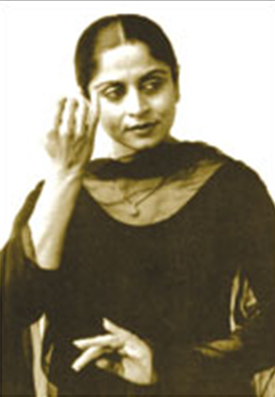Heritage: Pakistan
This is a collection of articles archived for the excellence of their content. Readers will be able to edit existing articles and post new articles directly |
Heritage: Cultural confusion Pakistan
By Shaikh Aziz
We claim to be the custodian of a great civilisation spanning over 5,000 years, but in reality we treat it as the heritage of Hindus, Buddhists and Jains.
Now that a new government has come to power, people are expecting a lot from it. How long it will take (100 days or 50 months) to turn things around will depend on those who hold august positions.
Among the many issues that demand serious attention, the one pertaining to cultural policy is of great significance. From the very inception of the country, we have seen nearly all governments toeing almost an unpopular cultural policy not reflective of our great traditions.
It is not disputable that Pakistan came into being in the name of Islam, but Islam does not stop us from parting ways with the past. No religion prevents its followers to promote cultural values or enrich arts and crafts, customs and traditions. Ironically, we fall into the trap of taboos. For instance, our approach towards music has been quite different from other nations. We claim to be the custodian of a great civilisation spanning over 5,000 years, but in reality we treat it as the heritage of Hindus, Buddhists and Jains.
In the early days of independence, our government was so busy tackling economic and social problems that no one paid heed to this aspect. But after the 1958 martial law, one fine morning Ayub Khan asked Mr Z. A. Bukhari, the then director-general of Radio Pakistan, to change the names and lyrics of the ragas to Islamise classical music. The poor fellow started carrying out the task. He virtually started telling vocalists and instrumentalists to use the new words and lyrics as coined by him. Thus Chandarkaus became Chandkaus, and so on. The music producers were instructed that the names of those ragas that were not yet changed should go on air without naming them by announcing that ‘… Ustad Nazakat Ali Salamat Ali Khan would sing waqt ka raga’, which, was definitely not a service to culture. This awful exercise continued for years.
The genres of dance and drama faced the same dilemma. While drama vanished, dance became a hated art form. During the days of Ziaul Haq, dance artists such as Nahid Siddiqui, Sheema Kirmani and Tahmina Mitha could not perform in public. Nahid Siddiqui became so dejected and disillusioned that she left Pakistan and stayed abroad for many years. She is now in Jallundhar with no intention to come back. The Pakistan International Airlines’ music academy that produced and promoted fine arts to a great extent was virtually closed down. When Ziaul Haq came to know about people’s feelings he reacted in one of his TV addresses that if someone wanted to listen to Nazakat Ali or Noorjehan, he was free to do so. But he did not mention drama or dance. This also continued for a long period.
During the last government’s tenure of ‘enlightened moderation’, the deterioration continued with the result that all musical arts suffered. In the absence of a high-standard academy all musical arts have declined to an extent that today, save for a few musicians, nobody is prepared to learn and explore the intricacies of these art forms. Musicians were forced to perform in the NWFP, and even eunuchs were not allowed to sing to earn a living. Audio and video shops were set ablaze and the situation remains unchanged.
Maharaj Ghulam Hussain Kathak had taught a few dancers in Pakistan; but after his departure there is no institution that can impart such training to interested pupils. But the maharaj too did that in his personal capacity and no assistance was ever extended to him from any official quarter.
Today a few privately-run drama clubs, art forums and some individuals are trying to promote drama and music. Dance is still an ignored area, except Sheema Kirmani who teaches at her home. Aslam Azhar, a man of many virtues, is playing an important part in the newly-formed National Academy of Performing Arts in Karachi which is a commendable thing; but only after wasting much time. The Arts Council of Karachi is also doing its bit but the need for a well-organised institution for all performing arts remains.
Here it has to be mentioned that Muslims in Indonesia, Malaysia and Bangladesh have not stopped promoting their arts. The Far Eastern countries have different religions and cultures, but they do not allow any clash between the two to take place. The Muslims of Bosnia have their own culture, yet they are Muslims.
How to face the situation is a frequently-asked question. When Aslam Azhar headed Pakistan Television, he initiated a long series of debates on the small screen inviting icons like Professor Karar Hussain, Faiz Ahmad Faiz, Dr N. A. Baloch, Ahmad Nadeem Qasmi and many more. They came up with all kinds of views on Pakistani culture. There was a consensus that pre-Islamic cultures could not be disowned and while following one’s customs and traditional arts, one could still be a true Muslim. It was Asiful Daula, Ibn Musajah, Ibrahim Musli and Zaryab who promoted musical arts.
Unless we evolve a cultural policy reflecting our national aspirations, historical background, social setup and international standards, we will not get out of the present situation.

